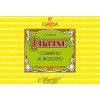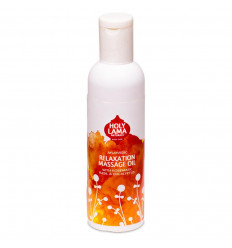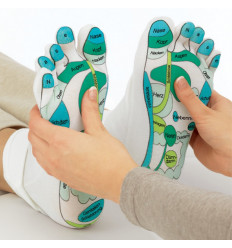Whether it's for an exam, an important professional appointment, before a parachute jump or even for our wedding, we've all experienced the state of stress before. It is part of the natural biological and psychic reactions that accompany us throughout our lives in all changes whether good or bad!
1. Stress among the French
has. Some figures
Nearly 1 in 5 French people almost always feel stressed! Among them, one in 3 people does nothing in particular to manage it (34%) or resorts to taking medication (7%). (1)
b. Who is affected by stress?
To begin with, and this may seem obvious, in the face of stress the important thing is to take action! Indeed, according to a BVA study, the French most subject to stress are those who do not try to overcome it! This implies that people who try to control their stress (thanks to the solutions that we will mention a little later) manage to be less dependent on it.
In France, young people under the age of 25 are the most affected by stress. Indeed, 53% of them say they suffer from "high stress" compared to 24% among those over 65 (according to a study conducted by IPSOS on 610 people representative of the French population).
Finally, in our country, stress affects an average of 4 out of 10 employees. Among all workers, the most affected by intense stress are senior managers, police officers, firefighters, taxi drivers, military etc...
2. What is stress?
Before addressing natural anti-stress solutions, it is important to understand and define it.
Stress could be described, by most of us, as a deep sense of unease during a threatening, new or perceived uncontrollable situation. The true definition of stress is none other than a biological protective mechanism to adapt to a situation. These are, in fact, reactions that take place in our body, themselves engaged by a "stressor".
Stress should not be confused with the emotion it provides, which is actually anxiety.
3. Where does stress come from?
has. Biologically
From a biological point of view, when the body feels something unusual, unknown or dangerous, it secretes 5 hormones called stress hormones (corticotropic hormone, cortisol, adrenaline, oxytocin and vasopressin).
Here is an example of one of the 5 secretion processes.
After identifying the stressor, a small region of the brain, called the hypothalamus, sends chemical messengers to different glands, such as the adrenal glands located just above the kidneys that will respond to this message by secreting cortisol.
The purpose of these secretions will be to provide the brain, heart and muscles with a significant supply of energy to cope with the situation in question. They will therefore generate this famous feeling of stress that can become chronic or acute.
b. External factors
It is important to know where your stress comes from. Determining what are the factors of our nervous tension is an essential step to take a step towards serenity.
1- The economy
It goes without saying that the economy and finances are a big part of a country's stressful situation. As a result of the current pandemic, it is significantly impacting the level of economic stress that is constantly increasing, both for people who have lost their jobs and for those who fear losing them.
This is also what explains the very good ranking of our country in terms of anxiolytic prescription!
2-Work
Work overload is one of the biggest stressors.
In a world where competition and the race for productivity are omnipresent, it is no wonder that our bodies and minds can feel a constant pressure that becomes unbearable on a daily basis. The accumulation of files, the demands of a boss or the tense working atmosphere between colleagues are only a tiny part of the multiple causes of stress that we can all encounter in our professional lives.
In France, 55% of employees feel stress every morning before going to work. (2020 Workforce Study).
3- Personal life
The search for a balance between professional and personal life is unique to everyone.
However, some people fail to achieve a satisfactory balance in their lives. In this case, it is often the quality of personal life that is impaired. In addition failing to reconcile professional and personal life can have an impact on family and friendship relationships. All these inconveniences caused by poor management of one's personal life are often factors of stress and exhaustion.
4. The different types of stress
To be able to manage it, it is crucial to know how to distinguish good stress from bad stress.
has. Positive stress
This positive stress, called "eustress", is a state naturally created by our hormones. Good stress or acute stress exacerbates our skills, increasing our productivity by making us more vigilant and alert. Also called acute stress it is a transient form.
b. Negative stress
Negative stress called "distress" is a state of permanent stress. It is more difficult to manage because it is present in the long term and can lead to serious sequelae, whether mental or physical.
Bad stress has a long-term impact as we will see later. Also called chronic stress, this state can settle over time and become very dangerous for our health.
5. The effects of stress on the body
The effects of stress on the body can be multiple and the consequences are sometimes devastating.
When it comes to acute stress, if the threat has disappeared, everything goes back to normal under the calming effect of cortisol. And the stress episode ends.
However, when it comes to chronic stress, and stress is complicated to manage, the effects are very harmful to our health.
Indeed, constant stress is a 4 times higher than normal risk of cardiovascular disease.
Musculoskeletal disorders are also a risk. They are characterized by back or lumbar pain, inflammation of the wrists, knees and tendonitis.
A high rate of stress can also create psychosomatic disorders. The most common are hair loss, acne, hives, psoriasis, eczema, digestive disorders, stomach ulcers, asthma, or migraines.
6. What are the natural solutions?
There are many natural practices to reduce and manage stress, whether chronic or acute.
These natural anti-stress practices are scientifically recognized alternative medicines that have already proven themselves. Some of them are used in schools or hospitals. The key words of these techniques are letting go, taking a step back from the external situation and focusing on one's interior and feelings.
We will see concretely how to manage stress through natural practices.
has. Meditate
First of all, meditate. Meditation is knowing how to become aware of the illusory dimension of certain reactions, thoughts or emotions. This natural solution makes it possible to reorganize the activity of our brain circuits that manage our emotions.
b. Sophrology
Sophrology is an alternative and natural medicine.
This breath-based workout is a very good anti-stress. It aims to create serenity and well-being by removing our anxieties, negative thoughts and tensions.
c. LFS
Finally, the emotional release technique (EFT) is a method derived from psycho-energetic acupuncture that is practiced without needles and independently. It is a form of acupressure on points of the body and face, it is very effective in fighting stress, anxiety, burnout, and depression.
Whether it is meditation, EFT or sophrology, these natural anti-stress practices can be practiced easily, independently.
To discover practices adapted to your needs, Takapulse, an e-learning platform, offers thematic kits to support you. Easy and practical, these "Click Kits", bring together different resources (mindfulness meditation, sophrology, EFT, emotional release techniques and naturo tips) to help you find calm and inner balance in crisis situations such as stress, anxiety, panic attack, exhaustion or sleep problems.
These kits include audios, videos, fact sheets. They were carried out in collaboration with accompanying professionals: Florence Pécriaux, Sophrologist; Camille Pélissier, Naturopath and EFT Practitioner; and Emilie Euillet, Mindfulness Instructor.
An excellent way to take care of yourself, find serenity and inner balance, sustainably.
Sources:
(1) January 2016 survey conducted by the BVA





















.JPG)






















Comments (0)